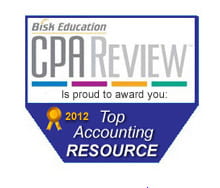Berkshire Hathaway’s Third Quarter Net Earnings Double, But Operating Earnings Decline 3.7%
After the market closed today, Berkshire Hathaway released its earnings for the quarter ending September 30, 2015 (Form 10-Q).
The highlights were:
(1) Net earnings increased by 104% compared to the third quarter of 2014, primarily as a result of a large one-time gain resulting from its stake in Kraft Heinz.
(2) Operating earnings declined by 3.7%.
(3) Income from its insurance operations declined by 34%, in large part due to a sharp decline in premiums and earnings at the Berkshire Hathaway Reinsurance Group.
(4) Operating earnings from non-insurance businesses increased by 5%. This included gains of 12% from BNSF railroad, and 13% from its energy operations, but a 4% decline in manufacturing, services, and retailing.
(5) Book value per Class A share equaled $151,083, an increase of 0.9% from June 30, 2014.
(6) At Berkshire’s closing price of $203,100 on November 6, it is currently trading at 1.34 times book value. Warren Buffett has stated that he would buy back shares when Berkshire traded below 1.2 times book value.
(7) Berkshire had $66 billion of cash on its balance sheet as of September 30. Warren Buffett has mentioned that he intends to have at least $20 billion of cash as a margin for safety. Part of the remaining $46 billion has been earmarked for Berkshire’s planned acquisition of Precision Castparts which should close in early 2016.
(8) Berkshire has “no intention of disposing of our investment in IBM common stock”, even though it has unrealized losses in its investment of approximately $2 billion.
(9) There was an additional investment of about $3 billion in equity securities (“Commercial, industrial and other”) during the third quarter. (Approximately $500 million was invested in Phillips 66 during the quarter.)
(10) Berkshire’s Class B shares traded lower by 0.7% in after hours trading.
I am quoted in TheStreet about Berkshire’s forthcoming earnings (November 5, 2015) as follows:
“The bottom line may look very good, but this is a one-time event,” said David Kass, a professor of finance at the Robert H. Smith School of Business at the University of Maryland and author of a blog dedicated to Berkshire Hathaway. “It’s certainly a real number, a real profit that’s being earned by Berkshire, and so it will make their earnings report look good. But I think the concern that many analysts might have, they will be focusing on continuing earnings, the operating earnings, what has occurred in the last quarter, and what’s likely to occur in subsequent quarters in the near future.”…
“He always puts a lot of weight on book value, which will depend heavily on the value of the stocks in his portfolio,” said Kass.
“As of the end of the second quarter, Berkshire Hathaway’s book value was $149,735. Kass said he doubts it would be moving very far from that number in the third quarter.”…
“As Berkshire has acquired large companies rather than pieces of companies as stocks in their portfolio, book value has become a smaller percentage of intrinsic value and therefore a less accurate estimate of the value of the firm,” Kass said.”…
“That doesn’t mean book value can be discounted completely, especially as it has also been established as a basis for determining repurchases. Berkshire’s board has approved a plan in place since 2012 to buy back its shares when they trade at a less than 20% premium to book value. “It sends a message to investors,” Kass said. “It results in basically creating a floor for the stock.”
(This blog post has been published by ValueWalk and Investing.com.)



